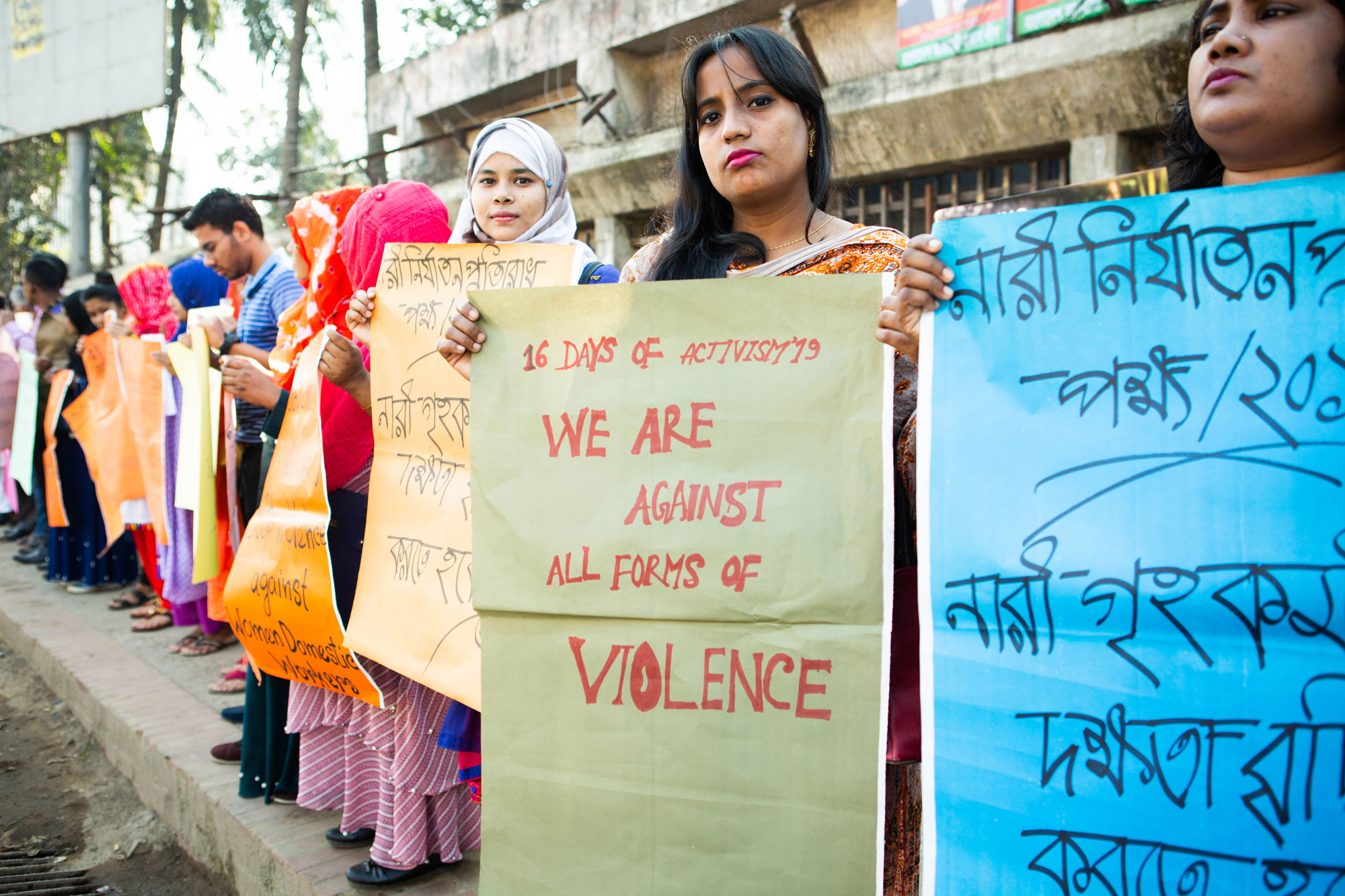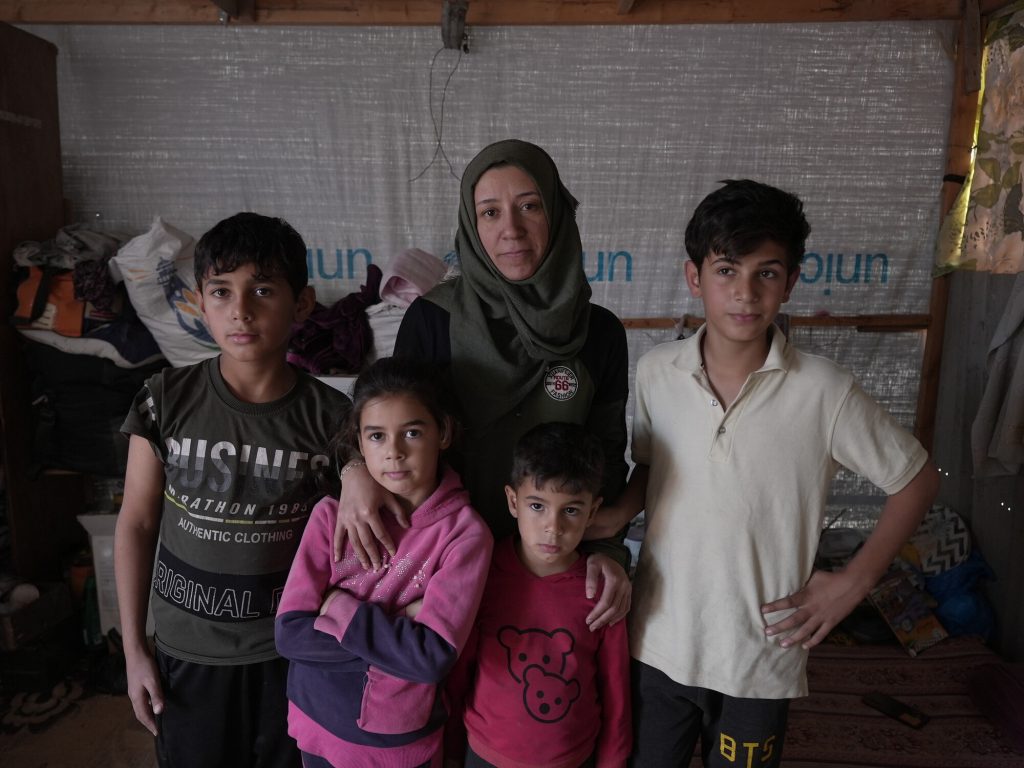‘There is no focus on domestic workers’: The invisible workforce in Bangladesh during COVID-19
Running water, electricity or technology that allows you to stay connected with your friends and family are all good things to have during a pandemic – but we are not all lucky enough to have access to these essential items. Imagine that on top of a global pandemic, you have to flee your home in search of safety, and you’ll start to get a small picture of what the people of Bangladesh experienced on May 19, when the country was hit by one of the most powerful cyclones to make landfall in the region in the last 20 years.
The path to domestic work
We know that climate change is one reason why people migrate from rural and coastal areas to city capitals. For women and girls, there are the additional reasons that drive them to the city, such as acute poverty, the need for or as a dowry, divorce or repaying family debt or loans.
In Bangladesh’s capital city, Dhaka, many rural and coastal women and girls turn to domestic work as one of the few options available to them in order to provide for themselves and their families.

A domestic worker in Bangladesh. Credit: RedOrange Media and Communications
This is their ‘choice’ despite domestic workers being one of the most marginalized and disadvantaged groups in Bangladesh. They end up taking up this type of work as women are much more likely to be unemployed in comparison to their male counterparts, regardless of their level of education.
As a Bangladeshi and an officer of international programs at Oxfam Canada, I don’t think I have known a household in Dhaka that operates without any domestic workers. It’s part of the culture. And yet, treating them poorly should not be. Sadly, I have known households where domestic workers are not allowed to use the elevator to get to the apartment, where they work, on the 10th floor of a building. This is just one example that underscores how people perceive and treat the women working in their homes.
There are 10.5 million people employed as domestic workers in Bangladesh. Since this pandemic forced the population in the country to go under a lockdown, the first people thrown to the side were the domestic help. As one household employer said, “Because you live in a slum; you are not allowed in my house.” It doesn’t matter if the same domestic worker has been providing all the care work for a family for years. In a moment and without any notice, they're out and someone else is in. It’s easy to turn a blind eye to people that are thought of as easily replaceable.
What domestic work looks like in Bangladesh
The life of a domestic worker in Dhaka city under normal circumstances – not just during a pandemic or following a cyclone – is extremely difficult. And yet, it’s always been easy for an employer to shout, be abusive or frustrated about the performance of their domestic worker. They rant to their friends and families about how “they” lack common sense. And yet, the employers rarely take the time to stop and think about the background of the domestic worker and where they came from or how they lived.
For these domestic workers, it’s not common to have a full kitchen, a tiled floor or running water in their personal lives. To further paint the picture of what it’s like for domestic workers in Bangladesh, there is a Facebook page that shares ‘warnings’ about ‘evil maids’ in Dhaka city. The posts include photos and identifications of domestic workers along with various levels of accusations aimed at them. The domestic workers are not given a chance to tell their side of the story. They are without a voice.
How unfair, unjust and one-sided is this? Imagine if all the corporate offices in Canada started doing a similar practice. Putting your identity on social media without your consent, writing an alleged story about your work performance in the name of doing something good for other employers.
∝
Along with abuses on social media, there is an absence of any formal recognition under labour laws and social protection schemes for domestic workers. In particular, women domestic workers in Bangladesh suffer from various types of exploitation that include long work hours, poor pay, no leave entitlements, restriction of freedom of movement and sexual and gender-based violence (SGBV).

Women protesting against violence as part of 16 Days of Activism in Bangladesh. Credit: RedOrange Media and Communications
Currently, there is no law to protect their rights. Not at work, nor in their own home. And in this pandemic, the situation has gotten worse. A recent assessment conducted by Oxfam’s Securing Rights project showed that since the COVID-19 lockdown, more than 90 per cent of female domestic workers are now experiencing abuse in their home from their in-laws or husbands because they can’t bring home money.
The assessment also showed that 95 per cent of domestic workers have not received their salaries for the last four to five months.
∝
Morjina Begum, a 25-year-old mother of three is a domestic worker. Since March, she has not been able to go to work as all houses and apartments in Dhaka city are denying the entry of any domestic workers. Her employer refused to pay her for the previous month’s salary and one of her children needs medicine for autism, which costs 12 BDT or roughly 0.016 CAD – that she now cannot afford.
For Pipasha Begum, 26, who lives in a slum of Dhaka city, she has not been able to feed her children for days. She doesn’t know when she or her husband, who is a mechanic, will be able to go to work. Without food and money, they told us they live in deep uncertainty and fear.
These are some of the many stories about people who help care for families and homes in Bangladesh. And during this crisis, their employers have decided to remove their support and not pay their salaries. Instead, pushing them into the streets to beg and, in the process, stripping them of whatever dignity they had left.
What’s your time worth?
Now that the employers are without their domestic workers and are having to do all of the household chores – do you think the employers would pay themselves the same small amount they’ve been paying their domestic help? Do they believe they’re doing a better job and deserve more money?
It’s a misguided thought by the employers because instead, if they had been providing the domestic workers the right salary, the right number of hours, the right expectations, they could have had the savings to help them through the lockdown of COVID-19. Without fair wages and stable employment, many domestic workers do not have the necessary savings or benefits to rely on during this difficult economic time.
WATCH: See how Deepa Kahdakar is treating her household help with dignity and humanity in Bangladesh
During the COVID-19 pandemic, the spotlight has shone on cases of inequality, injustice and abuse. However, when it comes to domestic workers and what they face, the spotlight has been absent – not only in Bangladesh but also globally. While there are some organizations in Bangladesh providing aid support to the slum areas, very few are there for the domestic workers. With the number of COVID-19 cases rising daily and the recent cyclone, the aid support is also running thin.
Laki Akter, from Nari Matiree a partner of the Securing Rights of Domestic Workers in Bangladesh project said,
“During this pandemic most of the domestic workers did not receive any relief goods or other supports from their employers or any other government or non-government support. There is no focus on the domestic workers. A survey we recently conducted reveals that 95 per cent of the domestic workers in Dhaka have lost their jobs due to the movement restriction. The survey also indicated a high intensity of domestic violence among the domestic workers, which is subsequently affecting their physical and mental well-being.”
How COVID-19 is affecting the lives of domestic workers
In times of no pandemic, it is extremely difficult to reach out and support live-in domestic workers. However, in today’s current COVID-19 climate, it makes that task nearly impossible. Distressingly, the abuse and violence will continue to happen because behind closed doors, no one will hear.
Imagine many live-in domestic workers now having to live with their abusers during this pandemic 24/7 and providing care work for them. Imagine not being able to go to work to earn your daily wages and not getting any government support. Imagine living life full of uncertainty as there is no one looking out for you.
READ MORE: COVID-19 may be borderless, but privilege isn’t
I hope this pandemic brings out a much-needed look at the situation for domestic workers in Bangladesh and results in changes in the current policies for domestic workers. I also hope this pandemic shines a light on the critical role of care work, which has always been a central, yet undervalued contributor in the mainstream economy.
It has always been easy for society to let problems trickle down to the bottom and it’s always easier to ignore issues that don’t impact us directly. However, please know that to lift ourselves out of the economic crisis that is looming in the future, these informal labour sectors will be one of the most important ones to include in that recovery.
MORE OF OUR COVID-19 IMPACT SERIES:
- The invisible pandemic that’s been years in the making
- What Keeps Me Up at Night: COVID-19, Abortion and Protecting Women’s Rights
- Economy & COVID-19: twin train wrecks for the women who make our clothes
Shamminaz Polen is an International Program Officer for Oxfam Canada.

